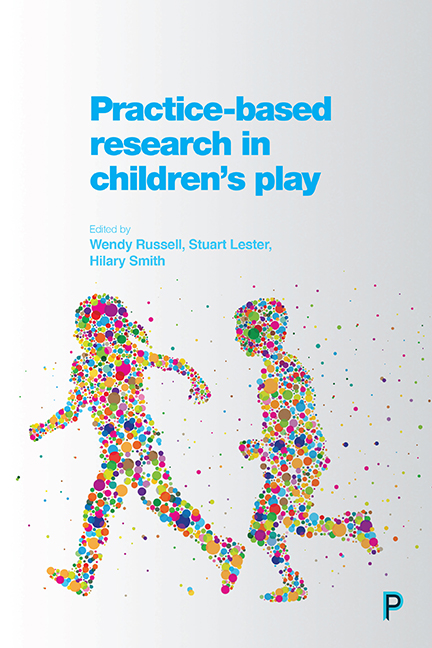Book contents
- Frontmatter
- Contents
- List of figures
- Notes on contributors
- Acknowledgements
- Foreword
- One Perspectives on play research: the practice-theory-research entanglement
- Part One Then and now: historical perspectives
- Part Two Here and there, this and that: spatial and creative perspectives
- Part Three Playfulness and wellbeing
- Closing thoughts
- Appendix: The Playwork Principles
- Index
Thirteen - Play, playwork and wellbeing
Published online by Cambridge University Press: 05 April 2022
- Frontmatter
- Contents
- List of figures
- Notes on contributors
- Acknowledgements
- Foreword
- One Perspectives on play research: the practice-theory-research entanglement
- Part One Then and now: historical perspectives
- Part Two Here and there, this and that: spatial and creative perspectives
- Part Three Playfulness and wellbeing
- Closing thoughts
- Appendix: The Playwork Principles
- Index
Summary
Introduction
Wellbeing and wellness are phrases that have increasingly found favour within public policy and the lexicon of health-related professional communities, particularly in the UK (ONS, 2011; Cabinet Office and DoE, 2013; DoH, 2014). Individuals and groups seeking to advocate action to address health and economic inequalities and social injustices also draw on the terms to bring attention to disparities in opportunities and life chances (Wilkinson and Pickett, 2009; Marmot, 2010). Despite the growing visibility of wellbeing it remains a contested term associated as much with objective measures of quality of life (in economic, educational and psychological terms) as with more subjective and colloquial notions of happiness. This versatility means it is hard to come to an agreed meaning (Ereaut and Whiting, 2008; OECD, 2009) and identify research strategies that capture its essence. Working definitions commonly identify links to a positive state of mind and body, feeling safe, a capacity to cope and an ability to build positive relationships (for example, Foresight Mental Capital and Wellbeing Project, 2008; Ben-Arieh et al, 2014). While such definitions reflect a range of influencing factors, it is suggested that wellbeing research is framed by ‘binary language’ (for example, characterised as objective versus subjective or state versus process) (Amerijckx and Humblet, 2014). As a consequence, the challenge for policy makers, advocates for social change, researchers and practitioners is to find a meaningful way to articulate what wellbeing is and how to understand it within the context of individuals’ lives and for different demographic groups.
This chapter details a year-long project undertaken with the staff of a playwork charity in the south west of England (Play Gloucestershire) and the children they worked with. The active engagement of children and playworkers (also referred to as play rangers in this chapter2) in the project allowed insight into what attending an open access play setting3 might bring to a child's wellbeing. Facilitated by the play rangers, the children's experiences were elicited through visual and participatory methods. This ensured the work was child and playcentred, authentically documenting the activities and interactions that characterise the free play environment fostered by the professionals and volunteers operating across the sites involved. For the play rangers, the project was an opportunity to undertake some training on and understand more about wellbeing and how their practice might contribute to its enhancement.
- Type
- Chapter
- Information
- Practice-Based Research in Children's Play , pp. 221 - 242Publisher: Bristol University PressPrint publication year: 2017



